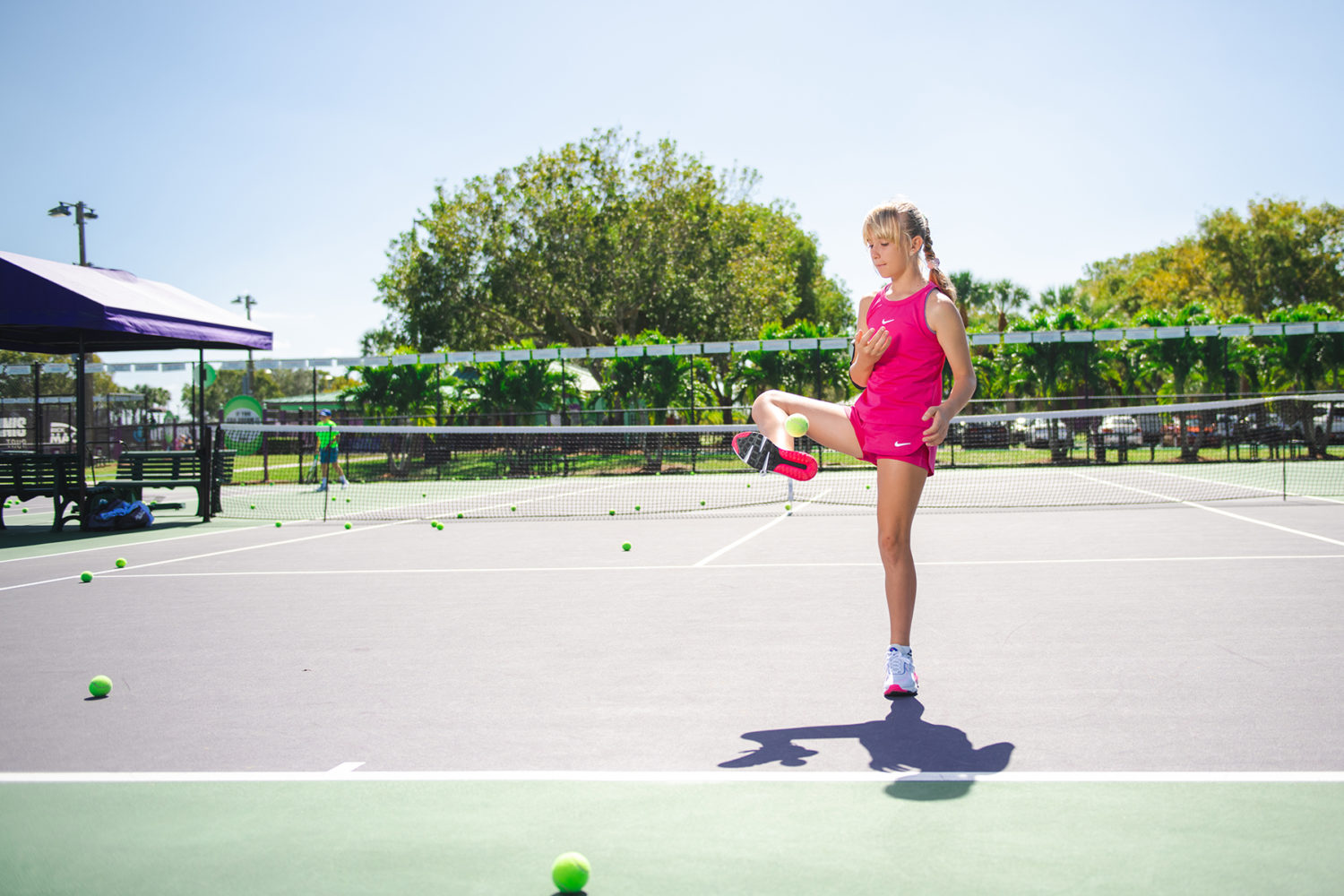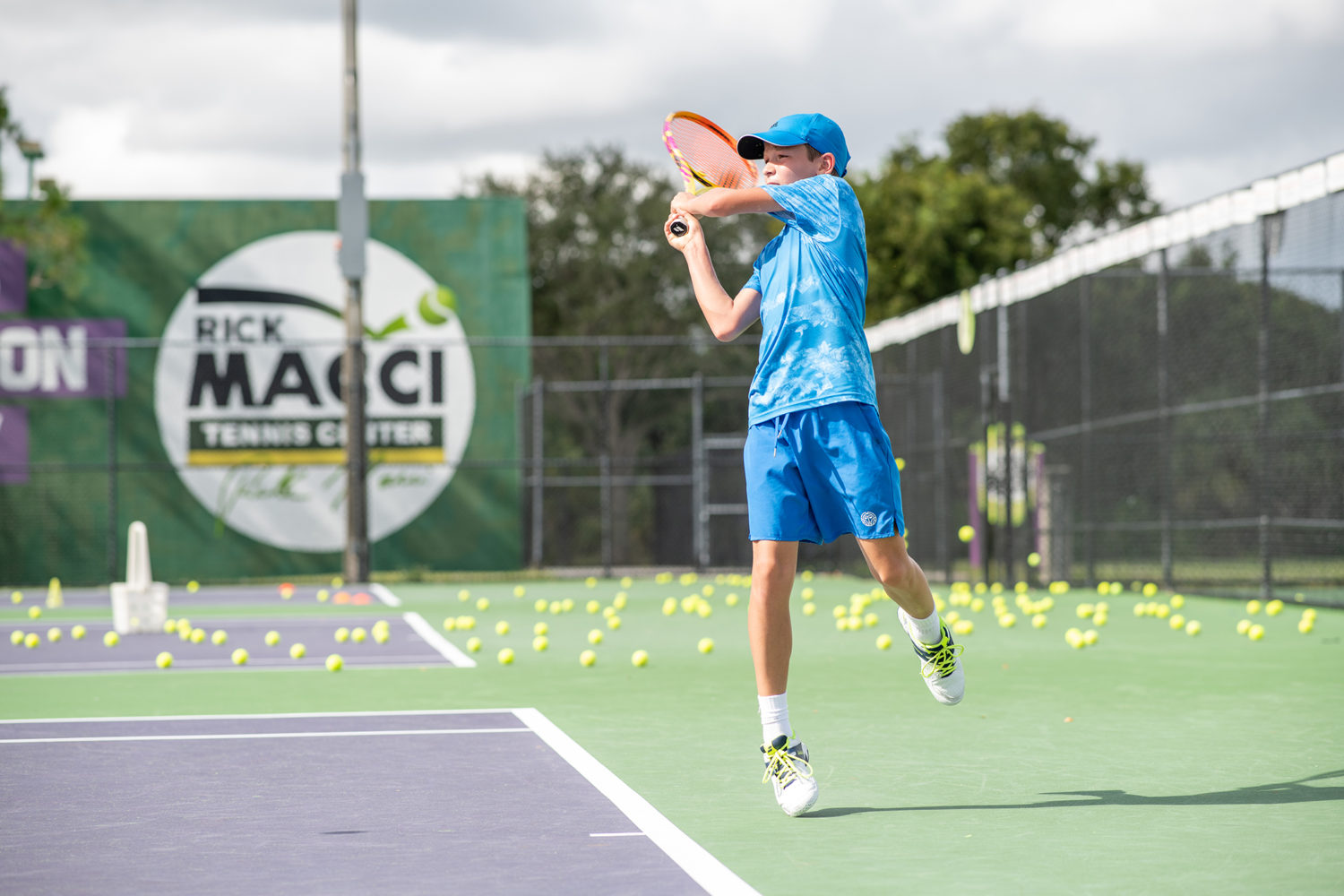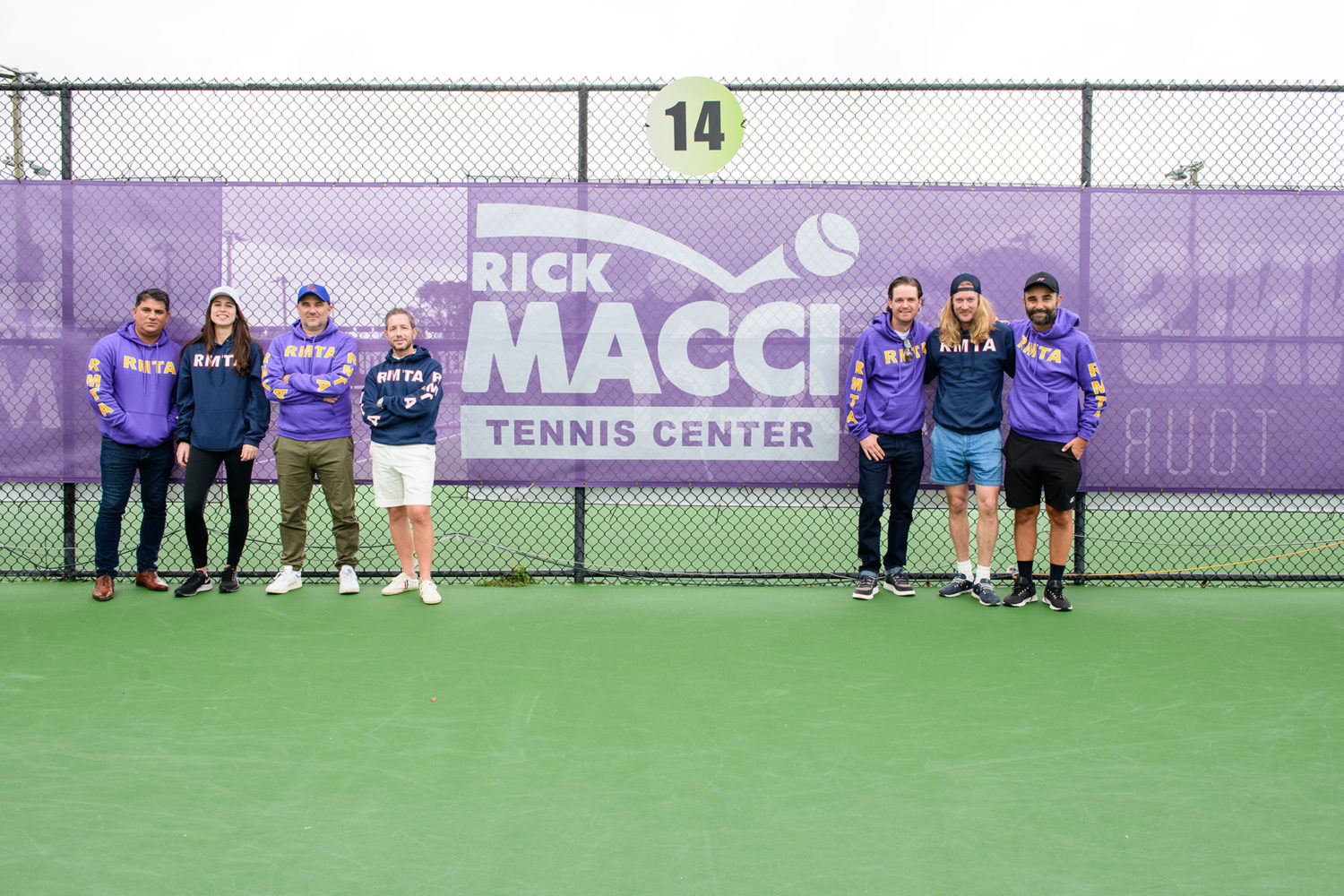Let Kids Be Kids

According to Marvel and my 9-year-old nephew, who never misses a Spiderman adventure, we live in a multiverse, a constellation of overlapping universes in which we hobble around without being aware of our parallel lives and without thinking that there are better versions of ourselves in other, happier dimensions. In this infinity of possibilities, there is undoubtedly a planet on which Grigor Dimitrov has reached his full potential; I would even go so far as to say that there is a planet not far from our own on which French tennis players did actually win Grand Slam tournaments. And while I’m at it, I’ll bet my anti-sweat Lycra polo shirt that in some universes, all future tennis champions benefit from a framework that matches their potential from a very young age, with benevolence, commitment and the family environment necessary for the realization of a professional project that seems a bit crazy when you’re still only a child.
In this regard, it’s clear that the only planet whose gravity can be measured on a scale isn’t quite living up to expectations. Regular readers of COURTS Magazine are now familiar with Edge, which allows us to show you the behind-the-scenes of the tennis world and whose cross-functional support model is starting to pay off, as evidenced by the impressive results of the agency’s protégés in the junior category over the years and in the professional ranks today. And guess what, without waiting for the hypothetical convergence of the multiverse, the agency has begun to support young teens and intends to do so until they reach their full potential. When we talk about children, we are talking about families. When we talk about families, we are talking about thoughtfulness. And when we talk about thoughtfulness, it seems we are talking about Edge.

Detecting Differently
Guillaume Ducruet, agent and manager at Edge on top of being the father of a promising young player, sums up the difficulty inherent in detecting young players: “When recruiting their future players, tennis federations often tend to make their choice based on results. However, at the age of 13 or 14, there are considerable biological differences between young players, especially among boys. Clearly, a 14-year-old boy who is over 6 feet tall and has completed his growth spurt will do very well at his age. However, children with other characteristics who won’t reach their full athletic potential until later shouldn’t be overlooked . Without the expert eye of some technicians, such thinking could have seriously hampered the careers of young players with slow physical maturity, like David Goffin or even Pierre-Hugues Herbert, who took advantage of doubles to climb the rankings as a teenager.”
In Europe, it takes up to 50,000 euros per year to initiate and maintain a path to a serious professional career, a sum that covers travel, equipment and training. It’s therefore necessary to find an entity capable of supporting the family behind the project – a role traditionally assumed by tennis federations, while in Eastern European countries, so-called “private patrons” are often the only solution at hand. The latter, however, expect a return on their investment and don’t hesitate to play hardball to get it.
The result is three types of profiles among the budding champions and their families: the privileged, like Gulbis, who can afford to finance a crazy project with no certainty of return on investment; the resourceful, like Herbert, who rely on their network to find money from companies, sponsors and communities; and the rest, doomed to give up or forced more or less at gunpoint to pay back the advances they received.
And then, there is Edge: “Our agency works on a long-term basis. We follow the kids from tournament to tournament, we look at all aspects of their game, their fighting spirit, their will, their mental attitude, their technique, their physical characteristics, their behavior off the court, and we meet with the parents… Our willingness to invest financial and human resources as long-term partners is based (if the parents share the same view) on strong convictions. Several experts from the agency, including Rick Macci, are involved in the recruitment process, which can sometimes take over a year. Interestingly, the physical shortcomings of certain young players can lead them to develop eye, motor and endurance skills that they’ll retain even after they have finished growing.”
Unlike other agencies, Edge offers flexible support, much like a foundation. Families aren’t required to pay back the money invested until their children reach their full potential. For example, if a player decides to attend a US College instead of turning Pro, the family doesn’t owe the agency anything. Given the variety of offers, this format, combined with the various support options proposed by Edge, is often very attractive to players and their families alike.
Full Accompaniment
The services offered by Edge don’t need to be detailed: Training sessions with Rick Macci in Florida, customized rackets with Dieter Calle, access to statistics with Fabrice Sbarro, accommodation solutions, dedicated fitness trainers, partnerships with tennis federations, training centers around the world, assistance in obtaining visas and wild cards… What makes Edge unique is that all these services are offered to players at a young age, so that they don’t waste time maximizing their potential. The overall concept of the agency is to help these young enthusiasts become strong, very strong indeed. So much so that Rick Macci, after seeing 11-year-old Sofiia Bielinska play and starting to coach her, is now convinced that he hasn’t seen a girl with such potential since the Williams sisters 30 years ago. So let’s have a look at some of her tennis achievements to date…

Family Ties
Sofiia is Ukrainian and the daughter of a former player with a modest professional career. After a promising debut, which included a participation at the age of 10 in the IMG Futures Stars 2021 tournament, where she played Alcaraz in mixed doubles and won in singles against several older competitors, she was offered a typical traditional agency contract. In this case, she would have had to move to the US without speaking a word of English and cut her ties with her mother Olga, a tall order for her. A couple months after turning down that offer, Sofiia had to flee Ukraine to Latvia with her mother, grandmother and dog (only the queen and the little prince were missing) shortly after the Russian invasion, almost destitute.
When Edge was informed of the situation, it agreed to help the family so that the child could continue to practice. Over time, a relationship of friendship and trust developed between the family and the agency, which eventually led to the signing of a partnership with long-term commitments. Last November, Sofiia and her family traveled to Florida, where the little girl participated in the Orange Bowl. Since then, she has been coached daily by Rick Macci himself.
From the end of April, the whole family will be back on the old continent for a few months, to enable Sofiia to participate in the major Tennis Europe tournaments. For reasons of convenience, they’ll stay all together near Bordeaux, on the property of one of Edge’s founding partners.
This family functioning is especially important because caring for young children also means interacting with the families and creating a common bond with them. Daniel-Sacha Fradkoff, co-founder of Edge, explains: “We spend a lot of time with families before making decisions, because we need to be sure that we are working with people who are rational, realistic, reasonable and respectful, whom we call the “ra-re people”. This is a necessity for us as partners, for whom the human aspect of the project is paramount, and for the young players, as it’s a guarantee that they’ll have a balanced life.”
Of course, it’s in everyone’s interest that parents “behave”. But the idea goes even further as those values should also create a “team spirit” (copyright LinkedIn!). In Florida, Sofiia and her family have shared an apartment with a young Romanian prodigy named David Cercel and his mother Alina, a former professional player herself, current Billy Jean King “Fed” Cup captain and Edge convert. The language barrier and broken English on the Ukrainian side didn’t stop the two families from bonding and the young children from baking together a cake for Rick Macci’s birthday – it seems that sugar is a universal language, even more so than music. This logic of mutual aid is at the heart of the project. It’s of course also about values, but not only. The life of a future professional tennis player is a nomadic one: no fixed school, no real anchor points, friends always far away. Camaraderie is therefore crucial to the well-being of the children, as is the knowledge that their parents are involved in the project.
And the same goes for the parents. This is the case for Theo, the father of little David, who was Simona Halep’s physical trainer for a dozen years until the arrival of Patrick Mouratoglou last summer and who doesn’t hesitate to volunteer to help other young players at Edge each time the opportunity arises.
Preventing Parental Loneliness
Accompanying a child on the path to a professional career is sometimes difficult for parents, as it can isolate them socially. When you have to get up early on Sunday morning to take your child to a tournament that’s not close to your home, you cannot accept dinner invitations the night before. Most importantly, it’s a project that you have to have lived through to be able to imagine it, and most people have a misconception about it. Between those who think it’s a parental whim that the child has to put up with and those who see the desire to accompany a passionate child as a sign of pretentiousness, parents can feel cut off. This is why it’s so important to have a strong family unit and to be able to share with others.
This logic of mutual aid is sometimes very evident, as when another young Edge player, 12-year-old Daniil Valter, a Russian living in Serbia, traveled to Romania to participate in a junior tournament. Arriving ten days earlier than planned, he was greeted by the family of his Romanian peer David, with whom he also shares a passion for Lego. Doubles matches, training together with one of the coaches sent by Edge for the occasion, a family life far from his close ones and probably many buildings made of plastic bricks: a certain idea of normalcy and well-being.
Needless to say, for parents and the world climate, there is no Planet B. Coaches come and go, but their child is unique. Once you’ve agreed on a plan, it’s hard to back out without creating the disappointing impression that you’re giving up. But once you know you are part of a community, you see things differently.
A community that rallies around the values of mutual aid and knows that at the end of the day, these children won’t be quite like the others. By traveling, by expressing themselves in different languages, by carrying on their shoulders the success of a project in which their parents have invested time, money and energy, these young players acquire skills that schools don’t offer as part of their civic studies. They learn languages, discover early on the strength of resilience and the taste for effort, determination, detachment, and resourcefulness. These are all adult qualities that are useful in the working world, and that open the doors to some of the most renowned US Colleges and give access to scholarships.
To ensure that the qualities developed early on in life are appropriate for each child, it’s important to involve their respective parents in the process.
Especially since parents are the ones with the Disney+ codes, thanks to which their kids can have fun in the Spiderverse after a hard workout or a winning game.
And even though they would probably crush any of us on the court, we should never forget that when all is said and done, they are kids after all! Let kids be kids!
1 Editor’s note: COURTS Magazine published an interesting article on this subject using the iconic example of Julien Maigret.